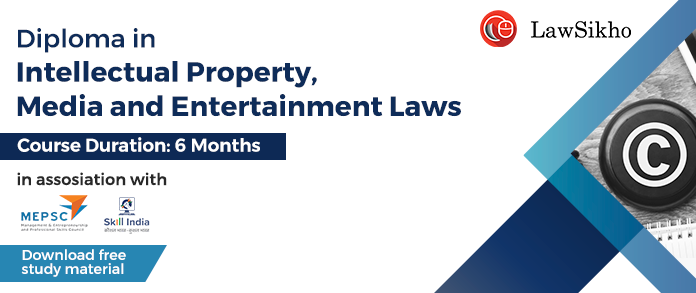This article is written by Arjun Ghosh from West Bengal National University of Juridical Sciences, pursuing Lord of the courses (judiciary test prep) at LawSikho. This article is an in-depth study of the Administrative functioning of the chief commissioner for persons with disabilities.
This article has been published by Sneha Mahawar.
Table of Contents
Introduction
The Indian Constitution applies equally to all Indian citizens, regardless of their physical or mental disabilities. In addition, all residents of India, including individuals with disabilities, are guaranteed integrity and dignity under the Constitution. Similarly, Part III provides fundamental rights to all citizens. Article 14 and Article 15 of this part provide protection based on disability. Additionally, Section 20 of the Rights of Persons with Disabilities Act 2016 (the RPWD Act) also provides protection to persons with disabilities from all kinds of discrimination in employment. However, in reality these protections are not all fulfilled by the state. Though the legislation is viewed as a tool to promote positive change and equality, the disabled in our society still have a long way to go. Despite the fact that the Indian Constitution guarantees fundamental rights to all citizens regardless of their physical or mental disability, disabled people continue to suffer as a result of inaccessibility in many places in the twenty-first century.
In order to promote and provide equal opportunity for people with disabilities, the RPWD Act of 1995 and the RPWD Act of 2016 were both passed by the Ministry of Social Justice and Empowerment. The Ministry of Social Justice and Empowerment established the Chief Commissioner for Persons with Disabilities as a special advisory body for disabled individuals under this statute (CCPD). Within the Ministry of Social Justice and Empowerment, the CCPD is a consultative board. This deals with a wide range of cases involving the rights of people with disabilities (PWD).
The passing of the Persons with Disabilities Act of 2016 under Section 60 provided for an advisory board for the benefit of persons with disabilities. Both the Act and the regulations outline the mechanism for enforcing and protecting disabled people’s rights.
Role and responsibilities of the Board
The Office of the Chief Commissioner for Persons with Disabilities was created to ensure justice and fair opportunities for persons with disabilities, as well as to develop suitable guidelines for the operation of the advisory board under Chapter 12 of the Act.
The Chief Commission for Persons with Disabilities’ main objectives are to defend the right to equal opportunity and participation in a wide range of activities, to put such rights and opportunities into practice, and to collaborate with other states. The CCPD offers funds to states and union territories for the welfare of disabled individuals, with the money being disbursed to those in need. The chief commissioners have the authority to take any issue involving disability into their own hands right away or to act on the request of any aggrieved disabled citizen. The advice must adhere to all applicable rules and regulations, as well as guidelines and directions, in order to comply with the complaint. The Chief Commissioner for Persons with Disabilities has been given some civil court powers too. Even in order to deal with PWD matters The Commissioner’s office has proven to be an accessible and quick source of dispute resolution for PWDs. The bulk of cases brought before the Chief Commissioner concern employment, advancement, or service. Before the Chief Commissioner, petitioners were given reinstatement instructions and warnings to businesses to ensure that PWDs were not discriminated against.
Preparatory guidelines
Under the Chief Commissioner for Persons with Disabilities Regulation, a preparatory guideline has been provided for following the procedure, which helps to apply the rules and regulations. It is beneficial for improved access. It has been provided to maintain the application process in a healthy way. These concepts or precautionary methods have not been exhausted; nonetheless, depending on the circumstances, they may be implemented or rendered moot. Such reasons as to why people with disabilities are unable to exercise their rights will be assessed, and appropriate corrective measures will be recommended. The CCPD will keep an eye on disability-related treaties and other international regulations and provide recommendations for how they should be implemented. The CCPD will conduct and promote research on people with disabilities’ rights in order to take a positive and inclusive step toward improving their lives. Apart from that, CCPD will increase public knowledge about disabled people’s rights and the measures in place to protect them. The CCPD will be responsible for enforcing the Act’s provisions as well as disability-related schemes and programs. The Chief Commissioner must consult the Commissioners on any matter while carrying out his or her duties under this Act.
Jurisdiction of the Advisory Board
The PWD Act 2016 has been divided into a few sections, and these provisions deal with matters of judicial proceedings. Apart from this, the Act provides various provisions and kinds of guidelines that are safeguards for persons with disabilities relating to judicial proceedings. One of them is that it has been provided for the judicial proceedings of the Indian Penal Code, 1860.
National Review Meeting of the Advisory Board
Every year, the CCPD holds a review meeting to determine the status of work and examine the status of implementation of the rights of persons with disabilities (RPwD), as well as offer comments and recommendations. State Commissioners give an account of their work, including actions they’ve taken and achievements in the disability sector by various ministries of the state government during the year.
Monitoring funds policy of CCPD
Under Section 75 of the Persons with Disabilities Act, one of the key tasks of the CCPD is to supervise the use of funds disbursed by the Central Government for the benefit of PwDs. This money could be used to increase accessibility, inclusive education, and the development of creative skills for individuals with disabilities in the following sectors- finance sector, insurance, employment offices, local bodies, education sector, health sector, rural development area, public transportation, construction, etc.
State Review Meeting of the Advisory Board
In order to ensure the centre-state relationship over the years in a cooperative way and make the development grossly state, commissioners are required to review the status of implementation every year.
The Office of the Chief Commissioner for Persons with Disabilities (CCPD) organises a state review meeting. After conducting the state review meeting, the CCPD discusses the evaluation of the work among the accredited states. Commissioners for disabilities, chief secretaries of various departments such as education, health, rural development, transportation, public health, social secretary, and others are all present. Furthermore, the state reviews have been praised for their effectiveness in raising public awareness about the Act through the media, non-governmental organisations, and civil society organisations. The Chief Secretaries of the States have received the necessary directives for the successful implementation of the RPwD Act. It can also be used to create awareness among government employees working on the Act’s implementation.
Accessible India Campaign mission
The Accessible India Campaign policy has taken a great initial step to making India more accessible. On December 3, 2015, the Department of Empowerment of Persons with Disabilities took the initiative. Their goal is to make locations more accessible to people with disabilities. It may be argued that everyone benefits from an accessible physical environment, not just people with impairments. Obstacles and obstructions to indoor and outdoor amenities, such as schools, medical institutions, and workplaces, should be eliminated. Furthermore, all public venues, such as office buildings, would be included. Persons with disabilities have no barriers to entering and using all of the amenities at a train, market, or hospital, for example. This includes services, steps and ramps, hallways, access gates, emergency exits, and parking. On basis of disability, it could be expressed in a variety of ways. For instance, a visually challenged person needs correct orientation and knowledge of the school’s or university’s road structure. Similarly, a leg impairment necessitates the use of ramps. Ramps, for him or her, could improve accessibility at his or her university. The Office of the Chief Commissioner for Persons with Disabilities has taken the initiative to audit public places for accessibility, such as government offices, public transport, hospitals, stadiums, restaurants, markets, shopping centres, railway stations, bus stops, airports, religious places, etc.
Hence, the CCPD not only creates accessible places but also tries to raise the standard of reasonable accommodation for people with disabilities and ensure that necessary modifications are made within a reasonable time.
Redressal of grievances
The Chief Commissioner for Persons with Disabilities (CCPD) is authorised by the United Nations Convention to Represent the Rights of PWD. Also, (UNCRPD) under Sections 75 and 76 of the Rights of Persons with Disabilities (2016) Act, instructed the appropriate government to take steps to protect the rights and facilities provided to persons with disabilities.
The same provision also applies to redress grievances related to deprivation of rights and non-implementation of laws, regulations, bye-laws, and other policies enacted by the appropriate authority. Even in order to ensure justice and claim their rights, people with disabilities knock on the door of CCPD. Here, the CCPD office plays an important role and has a special focus on implementing the PWD Act and helping to get justice. It has been found that a large number of people with disabilities come to this CCPD’s office when any appropriate government agency or local authority deprives them of their rights.
Since its beginning in September 1998, the CCPD has received a total of 38,688 cases, with 38,505 cases disposed of by the end of December 2020. During the financial year 2020–21, 636 instances were registered from April 1, 2020, to December 31, 2020, with 1663 cases being resolved, including backlog from the previous year. The Chief Commissioner’s/recommendations in the above-mentioned cases/grievances have been posted on the Department of Empowerment of Persons with Disabilities’ website.
Virtual hearing of the grievances during the COVID 19
While the COVID-19 pandemic poses a threat to all, disabled people are badly affected as a result of the COVID-19 response’s environmental and institutional hurdles. Many disabled people have pre-existing medical issues that make them more vulnerable to getting the disease.
When infected with the virus, they have more severe symptoms, which leads to a higher rate of death. During a crisis, those with disabilities who rely on others for their everyday needs may become isolated. Even unable to live during lockdowns, those in institutions are particularly vulnerable, as proven by the staggering number of deaths in mental hospitals and residential care homes. People with disabilities are also included in those circumstances. On the other hand, the court hearing was attacked at the start of COVID-19, and a similar effect was seen on CCPD due to COVID-19. As a result, the physical appearances of the complainant and respondent create a gap between 2020 and 2021. Therefore, on the Webex online meeting platform, CCPD changed to a virtual hearing as an alternative.
Implementation of the RPwD Act, 2016
The RPWD Act, 2016, was passed by Parliament. The Act marks a watershed moment in the lives of people with disabilities all over India. It includes measures for accessibility, reservations, and protection, as well as a goal of empowering people with disabilities. However, unless the law is executed, it will have no effect on the lives of the disabled.
Following its enactment, the majority of states still have not notified the Act. Under the RPWD Act of 2016, about 10 states have notified the federal government of their state rules. This displays not only apathy for people with disabilities but also disdain toward the core human rights guaranteed by the Act.
In addition to this, nursing homes, hospitals, restaurants, hotels, railways, airports, automobile companies, stadiums, public transport, office buildings, metro rail, banks, and passport offices were directed to register equal opportunity policies and appoint grievance redressal officers for the redress of grievances. Apart from that, the guidelines for equal opportunity policies to be submitted by various government and private organisations to the CCPD office have been finalised, and the policies received from the various organisations are being scrutinised based on the guidelines.
Conclusion
In this paper, I discussed administrative work and its functions in detail and tried to analyse all the relevant structures and their functions. In order to do so, I saw a huge progressive gap, such as our constitution, which has provided every type of protection for an Indian citizen in our country. But it is sad to see that a person with a disability faces a big challenge and has to deal with discrimination. Although after passing the statutes of the Person with Disability Act 1995 and the Person with Disability Act 2016, the confusion and difficulties have reduced a bit, there is still a long way to go for equal protection and full fulfillment of the rights of people with disabilities. The PWD Act describes the CCPD board’s ability to work with the problems and difficulties of the person with a disability, and the work level of the CCPD is very slow motion, which creates a reasonable gap, particularly in the rural area where progress is very slow. I realised that one of the reasons was a lack of representation and awareness among the general population regarding disabilities. To deal with these circumstances, I believe that a large number of representations are required. In order to achieve better representation, the CCPD should start working from the ground level. First, they should go to every village, rule the area in every corner of our country, and start a kind of camp that will be run by a state-level agency. And in dealing with this camp, they should provide basic and clear information about the disability. The awareness program should include the structure of education for the disabled according to the needs of the specific disability. CCPD will ensure that one percent of the disabled remain on the awareness programme team, creating a prima facie belief among the people, and the disabled person’s experience and understanding will make a ground-level lesion. It is extremely important for parents of children with disabilities. Due to a lack of awareness by parents, the child leaves school, which creates a gap between the disabled child and the non-disabled child. So, it is important for the parents of disabled children or someone else to be aware of the treatment of the disability and the needs of this particular child. Secondly, in order to deal with accessibility matters, ordinary people and able-bodied people should be aware of accessibility and have to learn how accessibility works. CCPD is only working in government places, such as hospital office buildings, schools, and colleges, but if the common people are not aware of the accessibility, the dream of full accessibility for the disabled will remain a dream forever.
References
- https://www.hindustantimes.com/india-news/know-your-constitution-fundamental-rights-and-duties-of-every-indian-citizen-101642927940238.html
- https://www.legalbites.in/golden-triangle-in-the-indian-constitution/
- https://www.ijlmh.com/paper/article-15-of-the-indian-constitution-no-discrimination/
- https://www.indianlawsinfo.com/home/section/5606/section-20-in-the-rights-of-persons-with-disabilities-act,-2016-/non-discrimination-in-employment%5E
- https://indianexpress.com/article/opinion/columns/exam-conducting-bodies-must-support-candidates-with-disabilities-7682627/
- https://disabilityaffairs.gov.in/content/page/chief-commissioner-for-persons-with-disabilities.php
- https://indiankanoon.org/doc/1568551/
- https://wecapable.com/rpwd-act-2016-summary-overview-infographic/
- https://www.indianlawsinfo.com/home/section/5660/section-74-in-the-rights-of-persons-with-disabilities-act,-2016-/appointment-of-chief-commissioner-and-commissioners%5E
Students of Lawsikho courses regularly produce writing assignments and work on practical exercises as a part of their coursework and develop themselves in real-life practical skills.
LawSikho has created a telegram group for exchanging legal knowledge, referrals, and various opportunities. You can click on this link and join:
Follow us on Instagram and subscribe to our YouTube channel for more amazing legal content.
 Serato DJ Crack 2025Serato DJ PRO Crack
Serato DJ Crack 2025Serato DJ PRO Crack













 Allow notifications
Allow notifications


